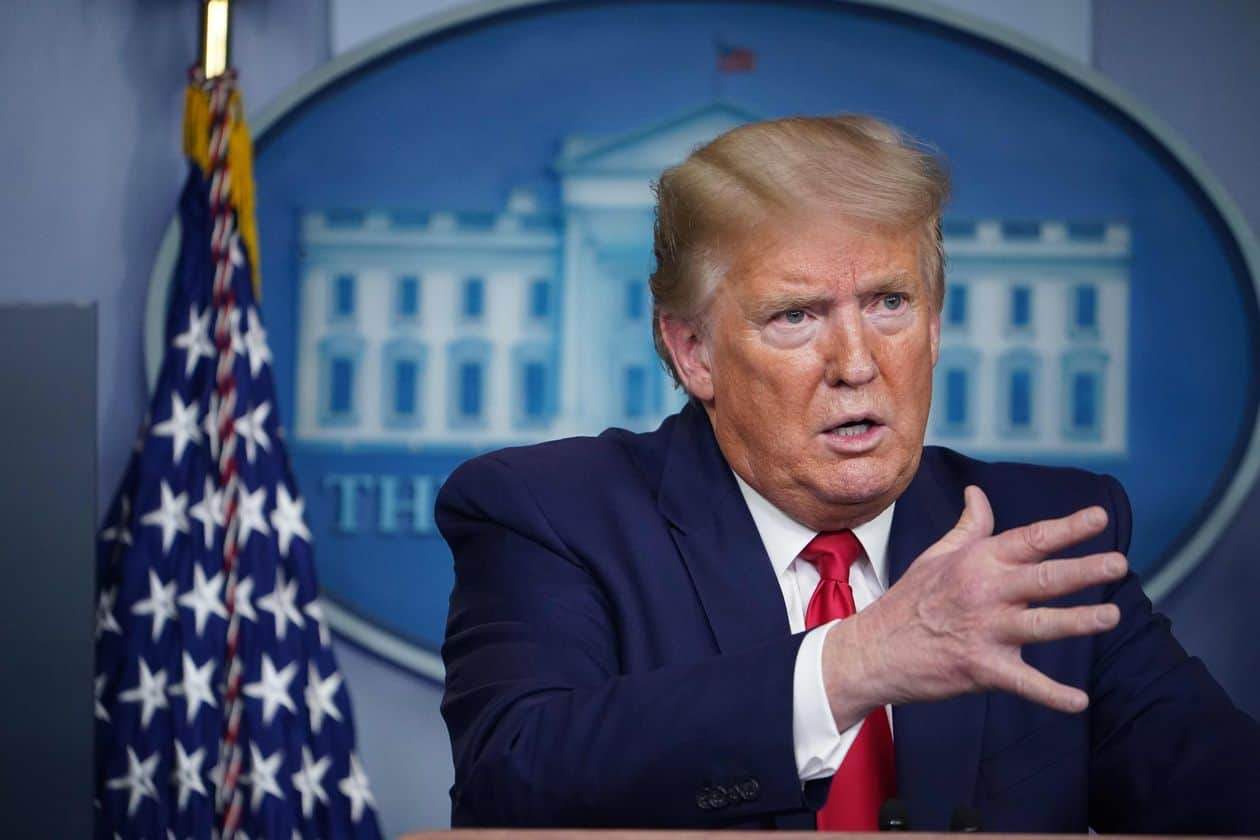Trump to Temporarily Halt Immigration Into the U.S. Amid Coronavirus Crisis

President Trump said he plans to sign an executive order temporarily suspending immigration into the U.S., saying he was doing so to protect American jobs as the novel coronavirus has taken a sharp toll on the economy.
In a tweet Monday night, he said he was signing the executive order “in light of the attack from the Invisible Enemy”—a reference to the coronavirus—“as well as the need to protect the jobs of our GREAT American Citizens.” He didn’t provide further details.
Administration officials said the order wouldn’t make substantial changes to current U.S. policy. Even without an executive order, the administration has already all but ceased nearly every form of immigration. Most visa processing has been halted, meaning almost no one can apply for a visa to visit or move to the U.S. Visa interviews and citizenship ceremonies have been postponed and the refugee program paused, The Wall Street Journal has previously reported. Migrants caught crossing the border are now immediately expelled once they are found.
The executive order is expected to include exceptions for migrant farmworkers, who make up about a 10th of the workforce on U.S. farms, and health-care workers, particularly those helping treat coronavirus patients, an administration official said. It is not expected to address the removal of immigrants already in the U.S. or the visa renewal process, the official said.
As with past efforts by the president to curb immigration, the executive order will likely face legal challenges.
The president has already taken several steps to restrict who can enter the country as the coronavirus has spread around the globe. In January, he imposed entry restrictions on foreign nationals who had traveled anywhere in China within the previous two weeks. In March, he banned travel by foreign nationals from Europe to the U.S., with some exceptions.
Later that month, the administration used an emergency public-health law to effectively close the southern border to illegal border-crossers and asylum seekers, saying migrants posed an unknown coronavirus risk to the nation.
The outcome was one Mr. Trump and immigration hard-liners in his administration had long sought to achieve, and in announcing the policy, he suggested it might outlast his emergency declaration.
In recent weeks, a debate has unfolded inside the administration over how many migrant workers to allow into the U.S. under a separate seasonal program, known as H-2B. Typically, these workers take jobs that last a few months, at resorts, county fairs and landscaping companies, and the number of visas is capped at 66,000, though the Department of Homeland Security has the authority to issue extra visas if demand exceeds supply.
In March, DHS announced it would issue 35,000 extra H-2B visas, over the objections of senior White House adviser Stephen Miller and other immigration hard-liners.
As the coronavirus crisis worsened and millions of Americans lost their jobs, the agency announced it was putting the extra visas on hold. An administration official said the executive order would ensure these extra visas don’t become available.
At the same time, the administration has prioritized continuing to detain and deport unauthorized immigrants, holding about 32,000 in detention centers where the virus has infected at least 220 people, according to data published by the U.S. Immigration and Customs Enforcement.
Other countries have also locked down their borders in light of the virus’s spread. The European Union last month imposed a 30-day entry ban on nonessential travel for non-EU citizens. Since late March, China has suspended entry for nearly all foreigners and limited international air routes to weekly flights.
The president’s announcement, suggesting he believes the coronavirus continues to pose a severe threat to the country, comes in contrast to his comments in the last several days, when he has laid out plans for how to reopen the country, indicating he believes the threat is dissipating. Last week, he began tweeting that several states, including Minnesota and Virginia, should “liberate” themselves.
Photo: The president has already taken several steps to restrict who can enter the country as the coronavirus has spread around the globe. Photo: Mandel Ngan/Agence France-Presse/Getty Images




